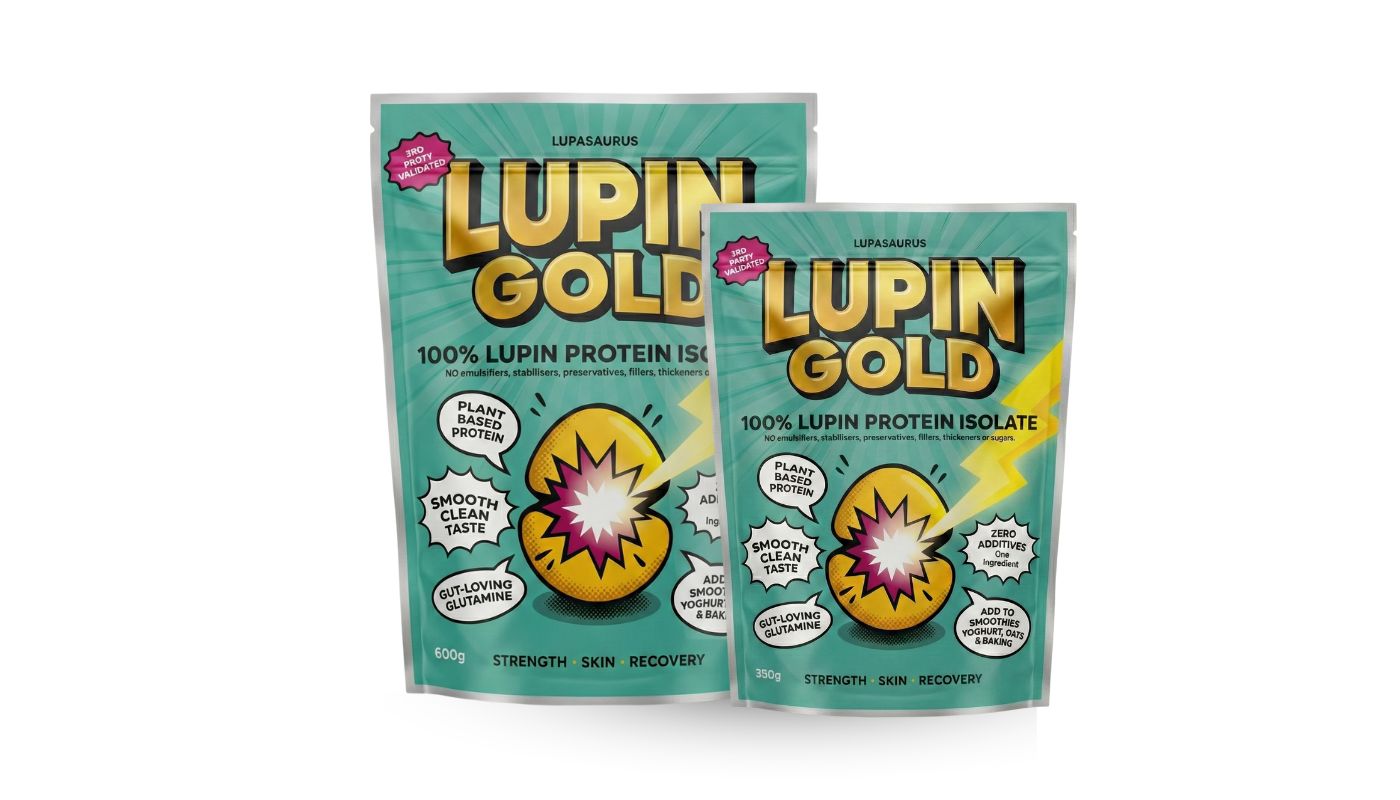Frequently Asked Questions
(The Actual Ones)
It’s a plant-based protein made from Australian-grown lupins. It’s high in essential amino acids, easy to digest, and naturally low in carbohydrates and fat.
Lupin is a legume (like peanuts and soybean), so if you have a known allergy to legumes or peanuts, it’s best to consult your healthcare professional before trying it.
Mostly fibre, with a small amount of residual salt from the original pulse.
No. While it’s perfect for smoothies, you can also mix it into oats, yoghurt, pancakes, baked goods, or even hot drinks.
Lupin protein powder is hydrophilic — meaning it naturally attracts and absorbs moisture from the air. Our powder is particularly absorbent, so keeping the desiccant sachet inside the pouch helps prevent clumping and preserves its smooth texture and shelf life. Just don’t eat it (we have to say that).
Yes, in small amounts with a foamer.
It will mix well in coffee or tea and holds up in heat without clumping. Just a heads-up: it might not be the taste you're looking for as it's not choc or vanilla flavour.
Not necessarily but we do it that way.
It's just better if you're taking it in smoothies but it mixes in well in baking or porridge.
Yes. Lupin protein is 100% plant-based, dairy-free, and suitable for vegan and vegetarian diets.
It delivers science-backed benefits for muscle, gut, heart, and metabolic health, including increased blood flow for both male and female sexual health - without the common downsides of other proteins like bloating, grit, or artificial ingredients.
Lupin is a legume, not a nut - but if you have allergies to peanuts or other legumes (like soy, lentils, or chickpeas), chat with your doc first. Seriously.
Definitely. Lupin protein supports muscle preservation, sexual function, joint and heart health, and is easy to digest—making it ideal for ageing well and staying active.
Lupin protein contains nutrients like L-arginine and glutamine that are associated with pregnancy health. However, always check with your doctor before introducing any new supplement during pregnancy.
Our lupins are grown in Western Australia and crafted in Germany.
We avoid soy because it’s harder to digest, lower in bioavailability compared to lupin, and contains phytoestrogens that can interfere with hormone balance.
Lupin is a cleaner, more sustainable, and far more bioavailable alternative.
Yes. Lupins are both a rotation and regenerative crop that naturally enriches poor soil with essential nitrogen, requires minimal water, and grows without harming forests or ecosystems.
No. It’s designed to support your diet—not replace it. Use it as a nutritious protein boost as part of a balanced lifestyle.


